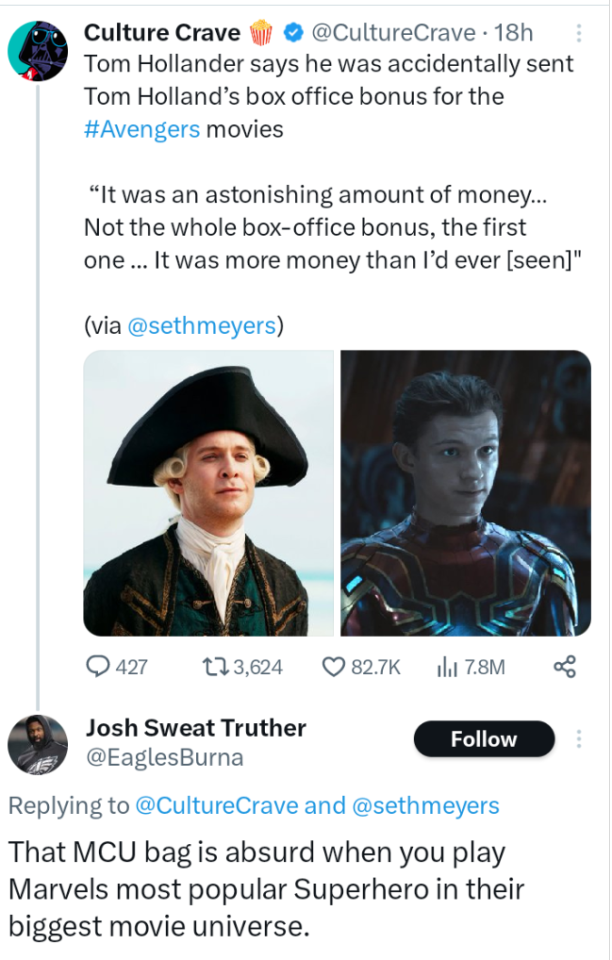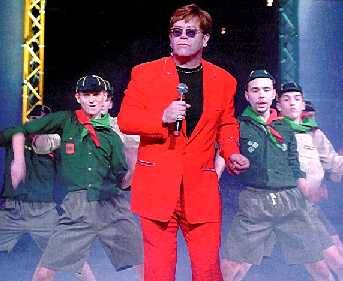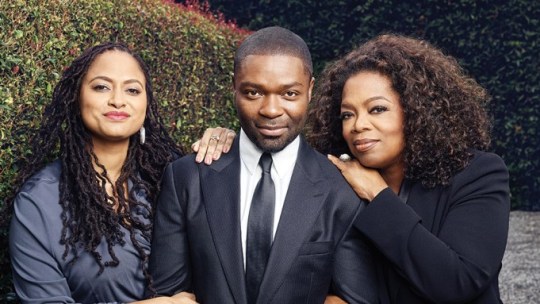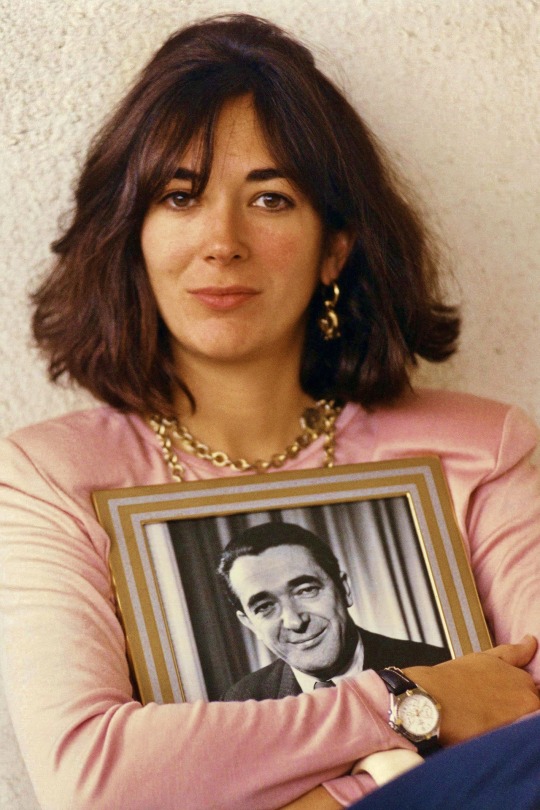#British Thugs Allowed To Play Historic Black Figures
Explore tagged Tumblr posts
Text
"Biopics of massively famous musicians are rarely very good, often because they stumble at the question of whom exactly they’re being made for. Are you making a movie for the already initiated die-hard fans yearning to see the life and times of their hero reflected back at them in exacting detail? Or is your movie a welcome mat for novices, a breezy jukebox of greatest hits aimed at cultivating new generations of fans, goosing streaming tallies and catalog sales in the process? Most musician biopics never manage to resolve this tension, in part because they’re usually also serving a third master, namely the musician’s estate, which tends to hold its own, very specific ideas about on-screen depiction.
Bob Marley: One Love, the new movie about the late reggae superstar that’s produced by Marley’s widow, Rita, along with some of his children, is a biopic that does seem to know whom it’s for, which isn’t a point in its favor. The film is directed by Reinaldo Marcus Green (King Richard) and stars Kingsley Ben-Adir as Marley, who does his best with the role despite not really looking or sounding much like the real Marley. (Within the past four years Ben-Adir has played Malcolm X, Barack Obama, and Bob Marley, quite the triptych of historical figures.) Lashana Lynch plays Rita and steals the film in every scene she’s in, even if the movie’s script fails to elevate her character past the archetypical suffering-yet-supportive wife of a genius.
Rather than taking a cradle-to-grave approach to Marley’s life, One Love instead focuses on a single period of Marley’s career, his self-imposed exile to England in the aftermath of the 1976 attempt on his life at his home in Kingston, during which time he recorded Exodus, the 1977 LP that marked his full breakthrough into global superstardom. The film opens with the assassination attempt, after which we’re quickly whisked to London, where the film depicts Marley writing most of Exodus’ songs in a cloying series of “eureka!” moments that tend to populate movies of this kind. Snippets of Marley’s classic “Redemption Song” surface as a recurring musical motif in the film, and in one of the last scenes, we see Marley performing the song for his awestruck family in a sappy flourish that’s also anachronistic. (By most accounts, Marley didn’t write “Redemption Song” until 1979.) Periodically we’re treated to a series of flashbacks of the singer’s earlier life, a clichéd device that this movie could have used more of: Brief forays into Marley’s conversion to Rastafarianism are surprisingly well done, and a scene of a teenage Marley and the Wailing Wailers performing “Simmer Down” at Coxsone Dodd’s Studio One is the best moment in the film.
One Love is an inspirational tale about a Great Man who used music to unite the world, one that reduces one of the most consequential and complicated artists of the 20th century to a walking fount of genial aphorisms, the guy who suggested we all get together and feel all right. As such, the film indulges a decadeslong public appetite for a particular imagining of Marley that his estate now seems depressingly eager to feed. It’s been 42 years since Marley died of a rare form of melanoma at age 36, and I’m not sure there’s a musician who’s more literally iconic: Go to any commercial district in any part of the world and within minutes you’ll find an opportunity to buy something bearing Marley’s likeness. In the United States, Marley has been a staple of dorm-room walls for generations: The casual and underinformed co-optation of Marley by American bro culture has even inspired a recurring meme in which Marley’s name is erroneously affixed to an image of Jimi Hendrix.
To a certain brand of musical cynic, Marley has become the embodiment of a musician whom people own posters and T-shirts of but don’t actually listen to, which isn’t totally fair to most of the owners of those posters and T-shirts. Some of Marley’s music is still enormously popular: His 1984 greatest hits compilation Legend is currently enjoying its 820th week on the Billboard 200, a position it will likely maintain for the foreseeable future given One Love’s early, strikingly robust box-office projections. The only album that’s spent longer on the chart is Pink Floyd’s Dark Side of the Moon.
But in the pop-cultural imagination, Legend has completely eclipsed everything else Marley ever released. The album has sold more than 15 million copies in the United States alone, while no other Marley LP has sold even 1 million stateside. From a purely mathematical standpoint, this would indicate that for many fans, Legend is the first and only Marley album they’ll ever listen to. I’m not sure there’s another greatest hits compilation that has played such an outsize role in the public definition of an artist.
Legend is a fine little collection, but the idea that it’s some sort of one-stop synopsis of Marley’s career is absurd. For starters, 10 of its 14 tracks date from the period of 1977–80, a four-year time frame that represents the height of Marley’s global popularity but is a relatively minuscule cross section of a staggeringly prolific, nearly two-decade-long recording career. (Five of Exodus’ 10 tracks are included on Legend, which I suspect is one reason that One Love is so invested in the album’s significance.)
This period also coincides with a time when Marley’s music seemed to take a step back from revolutionary politics, a tack that may have been driven at least in part by the aforementioned assassination attempt. The Marley canonized on Legend is not the Marley who sang “I feel like bombin’ a church/ Now that you know that the preacher is lyin’ ” or who called for “burnin’ and a-lootin’ tonight … burnin’ all illusion tonight” or declared that “Rasta don’t work for no CIA.” The dominance of Legend in the U.S. is particularly striking when one considers that Marley’s highest-selling album in this country during his lifetime was 1976’s Rastaman Vibration, which peaked at No. 8 on the Billboard 200 and includes such overtly political tracks as “Crazy Baldhead,” “Rat Race,” and “War.” Legend doesn’t include a single track from Rastaman Vibration, instead opting for romantic fare like “Is This Love” and “Waiting in Vain” and feel-good anthems like “One Love/People Get Ready” and “Jamming.” (For an excellent deep dive into the history and legacy of Legend, I recommend this article from the Ringer earlier this week.)
One Day’s Director Has No Regrets About the Movie’s Controversial Ending
Legend’s preeminence has helped turn Marley into the musical equivalent of a tourist destination, at which One Love is just one more cozy attraction. This is worse than a shame, because the real Bob Marley was one of the most remarkable musical talents of the 20th century. As a songwriter, he was so prolific that music seemed to pour out of him, a quality that has sometimes led to a naturalization of his gifts that veers into exoticizing primitivism. (One Love certainly partakes in this.) But rather than being some carefree savant, Marley was a fiercely disciplined and ambitious artist from the very beginning. He wrote and recorded his first single, “Judge Not,” in 1962 at the age of 16, and it remains an astonishing debut, an effortlessly catchy melody sung by a voice that sounds both nervous and supremely confident in a way that only a teenager can manage.
By the time he signed to Island Records in 1972 and began his ascent to international superstardom, Marley had already written a lifetime’s worth of great songs. He had a preternatural ear for hooks and crafted songs that were ready-made hit records, three-minute gems of perfectly crystalized musical ideas. As a singer, his indelible tenor rasp and thrillingly improvisational style were the byproducts of an extraordinarily well-honed sense of intonation and time. And during the 1970s, he fronted what might have been the best band on the face of the earth, grounded in the peerless rhythm section of drummer Carlton Barrett and bassist Aston “Family Man” Barrett, the latter of whom died earlier this month at age 77. (Aston’s son and namesake, an accomplished musician in his own right, plays his father in the film.)
One Love doesn’t know how to begin exploring this artist and his art in any way that even begins to be interesting. Instead it just feeds back the same sanitized and saccharine idea of Bob Marley to the same audience who has been eating that up for generations. It’s a movie about a poster. Over the end credits of One Love, archival performance clips of Marley flash onto the screen, and for a few moments we’re treated to sounds and images that are infinitely more magnetic and thrillingly alive than anything we’ve seen over the preceding 100-ish minutes. That Bob Marley, and the extraordinary body of music he left behind, is still out there for those who go listening for it, but this movie isn’t where you’ll find him."










#Jamaica and The Legendary Marley Family Sell Patriarch Bob Marley Down The River For Weak Tepid White Washed One Love#Starring British Lavender Mafia Boy Kingsley Ben Adir#Irish Mob#Corrupt British Film Industry#British Thugs Allowed To Play Historic Black Figures#Malcolm X#Barack Obama#Hollywood Gay Mafia Connections#Scientology#Sony Pictures David Geffen#Warner Bros#David Zaslav#IAC#Barry Diller#Kingsley Ben Adir#David Oyelowo#Tom Hollander#Kristen Stewart#Elton John#Cillian Murphy#Stephen Fry#Mark Gatiss#Capote and The Swans Star Used In Threat Against Spiderman Star Tom Holland#British Parliament#BBC#ITV#Jamaica Compromised#Charlie Cox#Daredevil
8 notes
·
View notes
Text
Following the toppling of the statue of Edward Colston in Bristol (and the daubing of slogans on the Cenotaph in Whitehall and the plinth of Churchill’s statue in Parliament Square), there have been an awful lot of poorly-argued positions flying around. One such is James O’Brien’s tweet which asserts, “Your view of the statue is your view of slavery”. Even given the limited character-count of Twitter, that is a very poor imitation of an argument. It plays well to the adoring gallery, but it’s no more coherent than “Your view of Boris Johnson is your view of people from New York,” or, “Your view of Priti Patel is your view of British Asian women”.
Those who have condemned the toppling of the statue have tended to rely on an equally poor counter-assertion: “It’s part of our history”. That is true, but it’s not an argument in itself, or perhaps not in the sense that its proponents think. Jimmy Savile is part of our recent popular history. Many of us grew up watching him on TV, and though we always suspected he was a bit of a weirdo, he was generally admired for his charity work, and plaques (and at least one statue) were put up in his honour. However, no one would now justify any public memorial to a man whom we know to have been a paedophile and a rapist. The same would go for any public memorials of Hitler. But should, say, Francisco Franco be similarly vilified? In the Plaza Mayor in Salamanca there are dozens of bas-relief roundels depicting rulers of Spain and the one of Franco was removed in 2017. And yet not one of the others (mainly monarchs from Felipe V to Alfonso XI) would pass any current ‘woke approval test’, largely because none of them lived in the 21st century. Franco’s ‘monument’ may have been removed, but the almost 40 years that he ruled Spain is thereby not magically excised. We cannot change the past. It remains a reality of history, to be debated, examined, recalled, abjured and/or celebrated. Few, if any, historical figures are irredeemably evil or faultlessly saintly.
So there is a tension between contemporary approval and “he’s just part of our history”, and no tweet is capable of resolving that tension in a couple of snappy sentences. I say “he” by the way, because very few non-royal statues are of women, and most that are are recent and therefore more likely to meet with contemporary approval. But even here there are controversies. There is a statue of Margaret Sanger (founder of Planned Parenthood) in the Smithsonian. She’s one of Hillary Clinton’s heroines and, thanks to the Planned Parenthood connection, a ‘woke’ liberal heroine. Yet she was also a proponent of race-based eugenics. In some cities in the United States, up to 5 times as many black women have abortions as white women. Surely, even the most ‘pro-choice’ person cannot think that such a racial disparity is something to celebrate?
Then we hear from Professor David Olusoga, a TV film-maker who tells us that statues are “not about history, but adoration” (and, by implication, approval). That is clearly nonsense, though an attempt at a pithy aphorism that will ensure the maximum media appearances. “Admiration” perhaps, but not “adoration” (and, moreover, “admiration” at the time of erection, not for posterity). Catholics and Hindus are usually those accused of ‘worshipping’ statues. I cannot speak for Hindus, but no Catholic ought to be ‘worshipping’ or, to use Olusoga’s term, ‘adoring’, a statue. A statue is a symbol or a token of the thing represented. 90% of the statues in a Catholic church are of the Virgin Mary and various saints, and none of them is to be worshipped — neither the statues nor the people they represent.
Even when it comes to representations of Christ himself, he is most often depicted nailed to a cross. We do not remind ourselves of the way in which Jesus was tortured and the sufferings he endured during his execution because we celebrate or approve of those sufferings. Rather, the cross stands as a reminder of what human beings are capable of ��� that when we meet perfect love, we are wont to destroy it. The crucifix is both a representation of perfect love and of human evil. It sustains millions in their prayer precisely because it is both. It demands reflection and meditation. Similarly, the fact that Auschwitz has not been bulldozed points to a similar idea — it is an image of something horrible, but what it represents should never be forgotten, even after the WWII generation are all long dead. And then there are the tombs and portraits of people in churches (particularly those dating from before the Reformation) — not honours given to saints, but plaintive pleas of the deceased for the living to pray for them, because they were aware of their own sin in life and believed they would need those prayers to have any hope for heaven. They were about humility, not pride.
Statues and memorials, then, are not straightforward, semiotically speaking. There is a strong case for having Colston’s statue removed to a museum (as the Hungarians did with all their Soviet era statues) or to a less prominent place, or even for its scrapping, certainly, but it does not follow that it stood as a ‘celebration’ of slavery, or its existence suggested that the people of Bristol are (nowadays) enthusiastic slavers. It might have been different if people were still bringing flowers and garlands, but that was not — as far as I know — the case. One annual protest which did take place around Edward Colston’s statue was the placing of figures of human bodies around the plinth, with labels like “domestic servants”, “sex workers”, “farm workers” and so on, reminding people that slavery still exists in this country. Colston’s statue had thus become, not the celebration of slavery that O’Brien thinks it was, but a rallying point for those who work to eradicate slavery in our own time.
Anti-Slavery Day 2018
Edward Colston is an easy target, because no one would defend slavery (pace O’Brien); but he was also a philanthropist, which is why he got a statue in the first place (1895 in fact). Should the wealthy, cosmopolitan, liberal city of Bristol be allowed to forget that it grew rich and successful partly as a result of the exploitation of human beings? Tearing down a statue doesn’t alter the fact, any more than a slave-owner giving money to charity alters the fact that his money came from slavery. One could argue that such an unhappy period of its history should be, visibly and palpably, on Bristol’s conscience; it shouldn’t be forgotten or erased (because it can’t be erased: even if you demolished Colston Girls’ School and all the other public buildings he endowed). He existed. He helped create modern Bristol. As they say, ‘Deal with it’.
Aside from a tangential contribution to parliamentary sovereignty, I do not ‘adore’ Cromwell in any way. He was a small-minded, anti-Catholic thug. But I cannot erase the fact that he ruled Britain for 5 miserable years, nor can I alter the fact that many still do admire and even ‘adore’ him. But the reason why a statue is erected is not necessarily the reason why a statue should be left in place. No one now worships Graeco-Roman deities, yet we do not crush their statues for hardcore. No one worships Bel or Baalshamin and yet most were appalled by the destruction of their temples in Palmyra by ISIS. The reason that statues are “our history” is precisely that they were erecting “in history”. They are snapshots of history. People in Bristol in 1895 deemed it seemly and fitting to erect a statue to Edward Colson. We would not do so now, but they did then. Perhaps even ten years later they would not have done so. People in the present are not bound by history, because we live in the present, but we cannot erase history, however much we might wish that the past had been better or different.
Let’s say that you are a teacher in Bristol and you have a young and thoughtful class of children (say, Year 7 or 8) with whom you wanted to examine the transatlantic slave trade and Bristol’s part in it. At the moment you have statues and the names of streets and buildings to go out and explore — in other words you have some actual history. It would be a similar story in most of Britain (think of Bold Street in Liverpool or Buchanan Street in Glasgow, etc.). Do we really imagine that the presence of a few 100+ year old statues and street names are going to make kids into racist apologists for slavery, or might the effect be rather different? We have heard, quite rightly, voices urging Britain to “confront” its dark past with respect to slavery. Seeking to “erase” the visible legacy of slavery might not be the best way of going about this, however painful those signs are.
There are also the empty comparisons with the toppling of the statues of Saddam in 2002-03, or Lenin in 1991-92, or the destruction of the Berlin Wall in 1989. The difference is surely clear. None of those Iraqis, Russians or East Germans had previously had any democratic means of getting rid of those statues or structures because they were symbols of oppression imposed upon them. Had Colston’s statue in Bristol been universally hated and become an issue in local elections then it could not have remained (Bristol has a black mayor, after all, who can hardly have been ignorant of the connection). It seems that it just wasn’t a major issue for people (which is an issue in itself). Olusoga’s (and some Labour MPs’) view that tearing down statues “IS history” is true, but not a justification. A year ago most people (Labour and Cons) wanted rid of Theresa May, and yet because we knew we had the means to bring this about (a vote of NC, General Election, etc.) we could not have justified sending a mob to Downing Street to remove her. If we were living under an absolute monarchy which still traded African slaves, then tossing Colston into the river would have been a political act, rather than a student jape. It’s worth remembering, too, that although the transatlantic slave-trade ended long ago, we live in a world in which more people are enslaved than at any point in its history. The countries with most slaves are China, India, Pakistan, followed by the Middle East, North Africa and the Sahara region. Protestors against the horrors of slavery should also be demonstrating outside the Mauritanian Embassy on Vauxhall Bridge Road. If we are to ‘never forget’ and ‘learn the lessons’ of slavery, should we not be standing in solidarity with Albanians and the Vietnamese who are the 2nd and 3rd largest groups enslaved in the UK? (And indeed British citizens, black and white, who recently took the No. 1 spot?)
When Britain abolished slavery in 1833 (and she would be criticised now for compensating owners yet not ex-slaves) the government borrowed 40% of the national budget* to do so. That debt was only finally paid off in 2015. In the view of Guardian journalists this was a shameful act and little more than ‘blood money’ (and some on Twitter have suggested that British tax-payers were still “paying slave owners” until 2015), but in the US let’s remember it took a civil war and 600,000 deaths to free slaves there. However differently we think Britain should have acted in 1833, the fact is that the Slavery Abolition Act incurred a significant financial cost. For a country to take on a debt so large that it would take 183 years to repay suggests, surely, an admirable commitment to the belief that all human beings ought to be free?
* £20m in 1833 would be approximately £16.5bn in 2013 wage terms. As 5% of GDP would mean £100bn (in 2016). The Treasury’s statement is here.
0 notes
Text
Winston Churchill and the British Fear of History
This piece is adapted from a broadcast of All the Rage due to be played on Trax FM on 20 February 2019. It will then be available for streaming and download; I thought it was worth putting into a readable piece too but please excuse the tone if it sounds like a radio show.
Sometimes when the deadline for a radio show approaches, I can be rather panicked. It can be a struggle to address interesting subjects in the right detail, or at the right time and I often have weeks wandering around stressing about what we should talk about.
This is not one of those weeks; because often, especially in Britain, anything from a serious issue to a seriously-not one drops into my lap from the wider world and our wonderful media - this week it has been that ghost of British history’s appalling past in the shape of one of Britain’s worst sons, Mr Winston Churchill.
The reason he is back in the news is because a few people recently have mentioned how he was not a wonderful person unlike his historical profile; the one getting the most attention is Labour Shadow Chancellor John MacDonnell, who was asked if Winston Churchill was a hero or villain; he replied villain and qualified this as being based in his actions as part of the Tonypandy riots. It caused the usual bullshit response from the usual people and lots of pathetic apologetic behaviour too.
Personally I wish they ha asked me because my response to Churchill would cause mass pearl-clinching hysteria in these circles no doubt.
Now, this will not be a biography on the bloke; I am not going to note his school life, every position he ever held or what so-and-so said about him. This is about facing some of Britain’s most terrible history and how it affects life in the country today – and what position Churchill takes in all this.
Straight out the gate, he is my position:
I hate Winston Churchill. I hate the things he believed, the things he did based on those beliefs and how he holds a heroic position in much of British culture. As a working class political activist and believer in the importance of knowing our history, he is a figure of oppression. As an active anti-racist, he is a figure of evil. He is class privilege personified and someone who has become a Jesus-like figure to the far right and centre and an example of the cultural inertia we face today.
More importantly, I hate the way it has become taboo to raise any question about him or anything about the Second World War, including setting certain facts straight.
If you are someone who feels saying such things about people like him or feel any criticism of the generation he supposedly represents is not acceptable, we will never agree but I would ask you to listen and hear a totally different view that while perhaps repellent to you, is sincerely held and formed.
Churchill represents so much that I hate about British culture and society and he was a terrible man. Let’s look at his worst hits:
Racism – Churchill was a white supremacist and is today considered a hero by people who have the same opinions. He saw Indians, whom he starved and Kurds, who he wanted to gas as ‘beastly people’ of a lesser worth and talked of wiping out the Japanese.
Whites were a stronger race according to him; better than blacks or quote ‘red Indians’ and this justified taking their place an land, mass slaughter, etc. Ironically for his modern supporters, he had more respect for Islam then they like to admit but one does not cancel out all the others.
He was also not opposed to fascism; he in fact had admiration for Franco in Spain and spoke admiringly of Mussolini in Italy.
Famine – most acts of mass starvation are caused by human action and Churchill was fundamental to the Bengal famine in India where 4 million or more died and it is estimated the Indian population suffered the equivalent of a loss up to 100 million.
Ireland – he suppressed Irish people, their culture and anyone who believed in independence including sending the brutal Black and Tans to subject the population to violent suppression, with thousands killed during the War of Independence.
Miners – during the miner strike of 1910-11, where strikers attempted to improve their terms and conditions that were being kept deliberately low. Mr Churchill decided to send in the troops and many in the working class community and especially Wales have never forgiven him.
He was a racist, extremist and enemy of the working class – simple as that. He was totally led by ego and getting his name into the history books just like some of his political decedents, although most of them have not managed to rack up the bodies that Winston has on him.
This of course feeds into the subservient attitude of today’s British (or more specifically English) culture that detests change and difference and while refusing to show decency and respect to so many types of people and viewpoints, demands obedience to the things they hold dear – such as war and dominating other parts of the world.
Every far right group, politician or general gobshite uses the war and ‘respect’ for soldiers as a shield usually for their own racism or similar hatred. It is a mindset like many religions or cults try to enforce – of not thinking or questioning what you are told. This foul representative of the ruling order somehow becomes a ‘man of the people’ through the power and privilege bestowed upon him by his class position.
In the modern context, we now see ludicrous comparisons with Brexit to the ‘Blitz spirit’ and a need to believe in Britain to get what you want; this was of course what won World War 2 and nothing to do with the Soviet army smashing the shit out of the Nazis at the expense of around 27 million soldiers and civilians on their part.
Worse, some people seem to like the idea of the Blitz; when bomber planes randomly took out houses and people every night; this is something that can only be thought by the dangerously ignorant and disconnected, not to mention a great insult to those who survived it, not to mention those not so lucky.
Winston Churchill did not win WW2; he did not even fight in it. He toured the sites of warfare after the bodies were cleared away and after the war, when the British electorate put him out of a job, he spent time writing himself into the history books; in fact many of his quotes are quite useful here – ‘history will be kind to me for I intend to write it’.
What he did is make speeches calling for unity and strength, which he acted on by leading a coalition government. But this was his job and not the only speeches he made. He also praised Mussolini, Franco and even seems to have admiration for Hitler. In fact his view as we noted earlier is that fascism was only a problem if it invaded Britain; it could do what it liked on the continent.
Winston Churchill did not save Britain in the war; everyday people fought, planned, sacrificed and died. Most importantly, the generation who fought in the war knew this.
Post-WW2: Birth of the Welfare State
The generation that fought in the war, who we lionise more than we ever talked to, had far less delusions about Winston Churchill; so much in fact that upon returning home and perhaps remembering how badly the returnees from WW1 had been treated, they demanded a better country to live in with a welfare state that took care of it’s people rather than privileged the rich.
Churchill was up for none of this – so they voted him out. A ruling class thug could never bring himself to allow the rabble to have any control over their own lives nor the country they had just fought for.
Fortunately the Labour Party was offering free healthcare via the NHS and all the benefits of a decent welfare system that treated people with decency and respect – and fortunately for all of us, the public voted for it.
Churchill’s Cheerleaders
Boris Johnson – this bell-end has written a book on the man and has nothing but unqualified and uncritical praise. For those of you not in the know, Boris Johnson is another egotistical upper class prick who has come into politics as his birthright – he is also utterly useless and never takes responsibility for his actions; sound familiar?
During the last week, when it was announced that the budget for a planned garden bridge that was never build during his time as London Mayor ran to £53 million of public funds, you would think the media might have been chasing him over this and a few other gaffs. But no, he was able to flap about John MacDonnell and the great insult to daddy Winston. Talk about a snowflake.
Also like Churchill, our Bodger Boris loves to indulge in racism such as against Muslim women and their ‘letterbox’ face vales, or claiming that when President Obama said Britain would not get preferential treatment for trade deals upon leaving the EU, that he was motivated by his ‘Kenyan roots’ to ‘hate Britain’ – so at least Boris has some understanding of British history.
Jacob Rees-Mogg – the living epitome of class privilege and the awful right wing politics that goes with it. Old Jacko cuts a ludicrous figure and that is probably the most dangerous thing about him; for like Mr Johnson he comes across as someone not to take seriously – but we really should.
Along with his retro-views on women and LGBT rights, he loves the Victorian era and was once exposed attending a dinner hosted by The Traditional Britain Group, who among other things feel no one non-white can be British and advocates other ethno-nationalist themes. They have advocated for the deportation of non-whites including Doreen Lawrence. They also hosted Simon Heffer and Richard Spencer as speakers.
His recent hit was to claim that the British invention of concentration camps during the Boar War was for their own safety and all those who died were just part of what happened years ago when more people just died…this was part of his answer to the question of Churchill.
All of which slots nicely into his hard right political position
Sadiq Khan – I don’t like to take a pop at the London Mayor as in a lot of ways I like him; but he is a centrist and on issues like this, he is a little too cautious for my liking; not perhaps a cheerleader but part of those who have equally failed to tackle the true meaning and human weight of the actions that Churchill committed.
While co-hosting a regular phone-in last week on LBC Radio, the question came up and he talked about understanding Churchill ‘in context’. What exactly the context for understanding a mass murderer who hated non-whites and the working class is, Sadiq did not go on to note sadly.
In fact this liberal unease at condemning Winston Churchill is probably more disgusting that the right wing open praise and hero worship; after all, it is their nature to cheer a right wing white supremacist whose actions led to the death of thousands – what’s your excuse liberal boy?
No doubt it relates to the hatred in liberal centrist circles for the left; during the Blair and Brown years they thought the political inevitably of capitalist realism meant we had been cast into history forever. But that is not the case and they have been having daily breakdowns ever since Corbyn became Labour Party leader.
Perception
Earlier I referred to the perception of Winston Churchill in this country and what I am specifically talking about is how he has become an icon who cannot be criticised; when people do criticise him, responses can range from complete dismissal of you as a person to outright death threats.
But it was not always such because once again we have seen a cultural movement that has taken even more drastic hold in the last thirty years’ class war.
Despite what media and modern discourse might have you believe, it is not uncommon – and was more so for the war generation – to find working class communities and people who have no time for Winston Churchill, my family included. He was seen as the elitist rich boy he was and all the things he did were informed by that and the need to preserve the status quo. People from Wales to India have no trouble assessing him based on everything he did, not just his hyped-up war record.
So many of the ideals of the far right come from Churchill; his belief in the lesser worth of other nations’ people and religions; his belief in mass slaughter; that ethnicities like Indian people ‘bread like rabbits’ and even closer to home, his contempt for the Irish and working class in general.
Subservience
All of this is also tied into British history in regards Empire and all the evils done there. Too much of English-dominated society either does not want to face this history, or has no problem with it; this is the reason for racism, xenophobia and the silly idea of English exceptionalism
Now I have my theories about why this is but none of them are complete so I may have to conclude with a question rather than an answer; why are people so subservient to power? We can look nationally, in which case no doubt it involves the class system but then America is just as bad if not worse. They of course have a class system that is rarely talked about traditionally but also the overt worship of position in hierarchy, which they probably inherited from the British. It does not matter how you got power, just that you have it.
So is it a western problem? Not entirely although that may be a particular type but plenty of countries in Africa, Asia, Latin America, anywhere you choose to mention has a love of ‘strong man’ leaders.
But then again many other parts of the world – from Europe to wider – have also had working class-led revolutions and Britain has not.
Recently Lord Finkelstein – a Tory Lord – published a piece in The Times saying that Churchill was a racist and life-long white supremacist. Even someone on the political opposite gets this, so what’s the problem?
Conclusion
Winston Churchill was one of the worst people Britain ever produced who cynically wrote himself into history as a more important man than he was.
I feel no affinity to country or nation and I will not surrender my critical faculties for anyone especially a self-serving member of the elite.
This brings us back to the culture war again and links into wider blathering about ‘Western Civilisation’ and how anything foreign (read non-white or Jewish) is degrading the greatness of our beloved culture – that would be the thing whose biggest exports in the last 20/25 years have been a game show about becoming a millionaire and a supposed-talent show about torturing my ears. ‘Western Culture’ is again a concept with roots in colonialism, anti-Semitism and racist assumptions about impurity brought about by mixing.
As Owen Jones pointed out, our rights and freedoms were not given to us but won by everyday civilians demanding them; suffragettes, trade unionists, political campaigners and today kids striking for the future of the planet.
The hero worship of Winston Churchill is a way of airbrushing out the work done by all these people; real people like you and me who give and gave everything as oppose to Churchill who only ever acted for himself. Hero worship and patriotism will get you nowhere and require wiping out large swaths of actual fact and history in order to make your side look better – a side to which you have added nothing, merely been born into and taken for granted that you have a right to certain things above others.
Now, for the first time in my life, we have the chance to really change society – to make life better with stronger rules and laws governing working; the opportunity for a foreign policy that does not involve terrorising weaker countries; to make life more equal and demand those with the most pay their way. We also need to get with the programme in regards climate change otherwise we will not be here much longer.
Ditch the worshipping of anyone but especially these appalling establishment toads. The class war has not managed to destroy us despite throwing everything at the job; now we need to stop doing it for them.
Recommendations
Winston Churchill by Clive Ponting (Sinclair-Stevenson, 1994)
A far more honest and comprehensive study of the man’s career
Contrpoints video on The West was very informative and funny
https://www.youtube.com/watch?v=hyaftqCORT4
0 notes